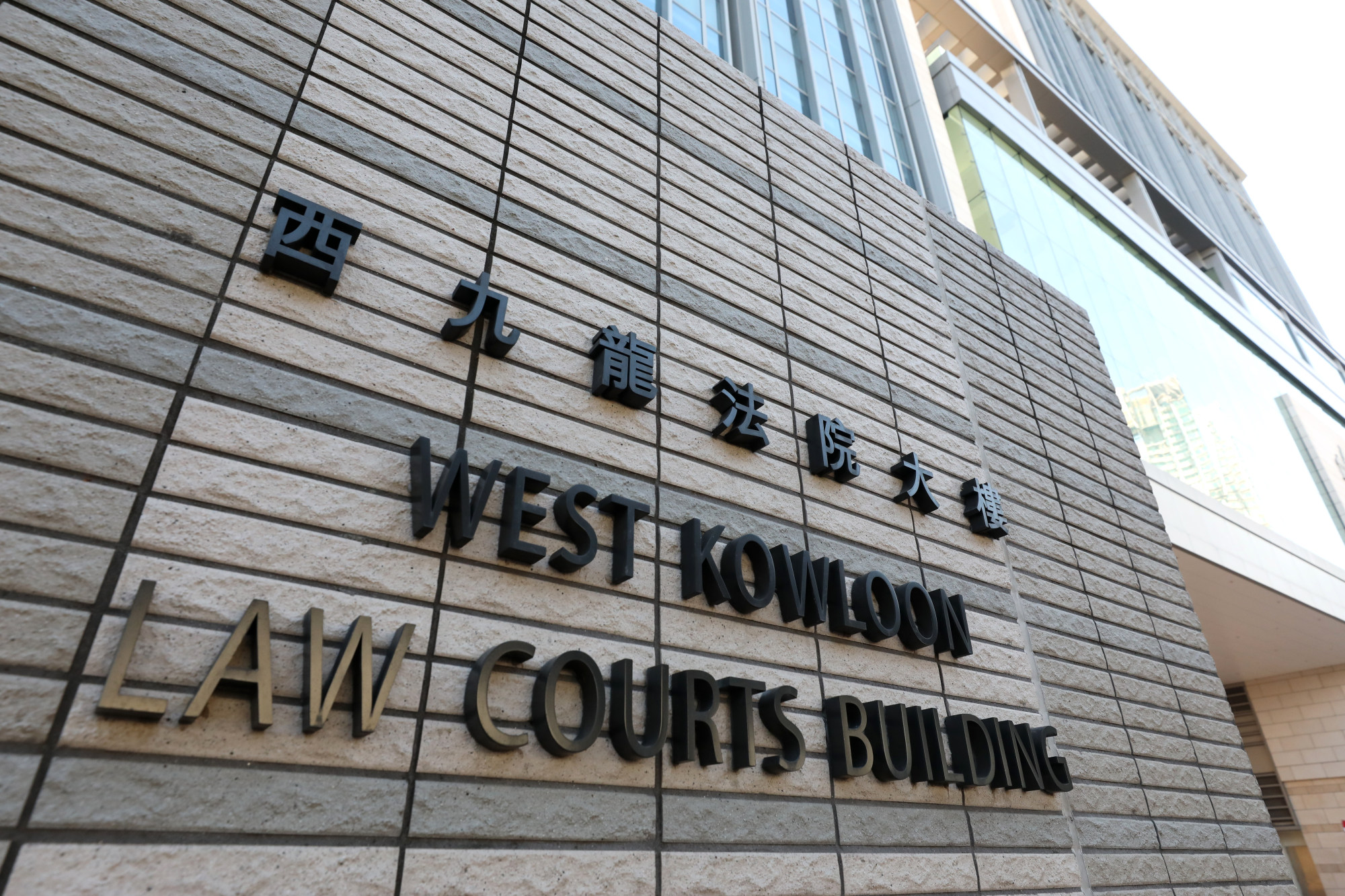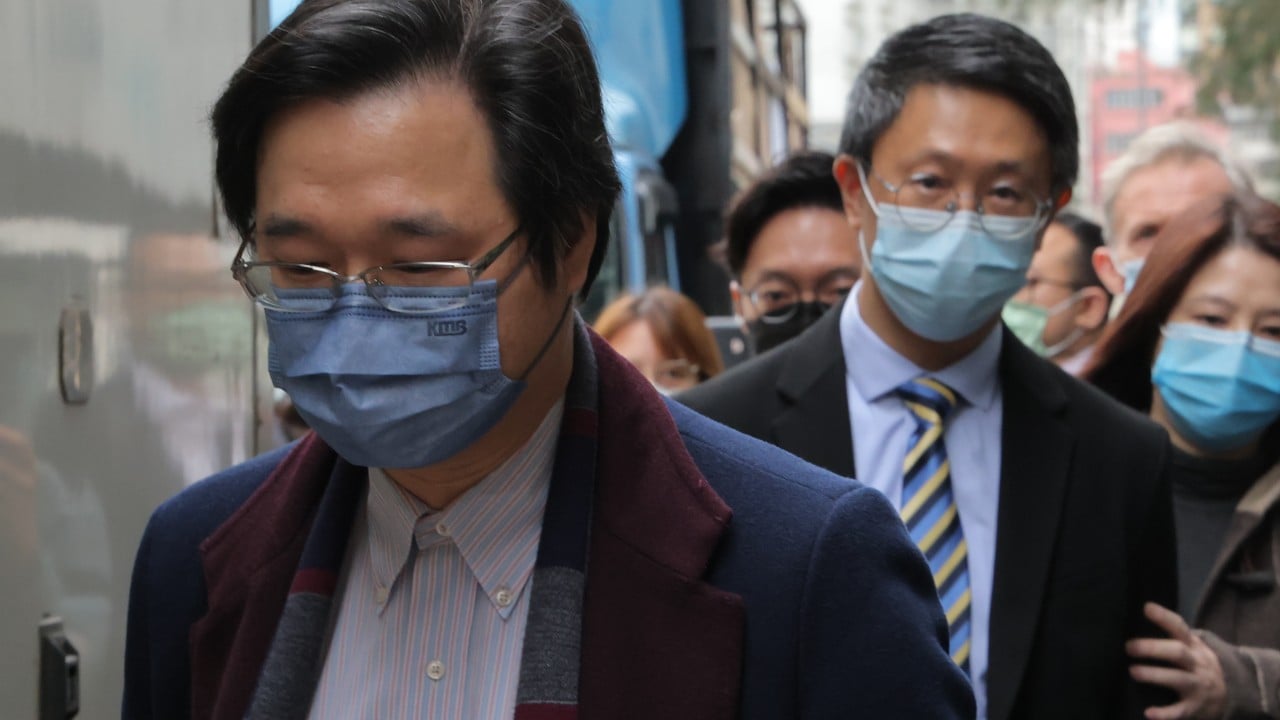Hong Kong doctor tells Coroner’s Court he followed prescription of earlier doctor in hepatitis B case where woman later died of liver failure
A Hong Kong public hospital specialist linked to the high-profile death of a hepatitis B patient seven years ago said he only followed the prescription of the doctor who last treated the woman and did not consider use of an antiviral drug usually needed for cases involving liver disease, the Coroner’s Court has heard.
Chan Siu-kim, a nephrologist, told the court on Tuesday that he assumed Tang Kwai-sze, a hepatitis B carrier, had been well-informed about the consequences of not taking an immunosuppressive antiviral drug even though she was on a high dose of steroids which was prescribed by the other doctor, Lam Chi-kwan, on January 20, 2017, about a month before he treated her.
Lam on Monday gave evidence that he did not prescribe a necessary antiviral drug because he was “distracted”, although he admitted that he knew failure to prescribe the medicine to hepatitis B patients who had also been given a large dosage of steroids could have serious consequences, including liver failure.
The court heard that, during Tang’s series of visits to United Christian Hospital between August 2016 and February 2017, she was treated for kidney disease and was prescribed 40mg of steroids a day by Lam.

During a 10-minute follow-up consultation session on February 17, 2017, Chan reduced Tang’s steroid dose as the drug had caused the side effect of a swollen face. But he said he did not add an antiviral drug to her prescription.
“As I now recall what had happened then, I would have asked the patient about giving her antivirals,” Chan told Coroner Monica Chow Wai-choo, a five-strong jury and the deceased’s daughter, who was in court.
“Perhaps things would have had a different ending [if I had done so].”
Chan said he did not check with Tang whether she was aware that no antiviral had been prescribed, as he believed Lam and the patient had “reached a conclusion” about not taking the drug, which the patient was required to pay for.
Chan was asked by Tang’s daughter why he had been “blindly following” his colleague’s actions.
He replied that hospital staff worked as a team, so the decision had to be made based on Lam’s professional experience.
Hong Kong doctor in liver patient death case blames being ‘distracted’
Hong Kong doctor in liver patient death case blames being ‘distracted’
The court heard that Tang was admitted to United Christian Hospital on April 1, 2017, and examined by internal medicine resident Lau Ka-ying. Tang was transferred to Queen Mary Hospital for an urgent liver transplant four days later.
Lau said Tang, who had acute hepatitis, had told her that her diet included seafood and some Chinese medicine, and that led her to order a toxicology test to discover the reason for the flare-up of the condition.
She added that the report came back a week later and showed the test had been cancelled for unknown reasons.
Tang underwent two liver transplants between April 13 and 20 that year in Queen Mary Hospital. She remained in critical condition and test results showed liver failure, blood clotting and a deterioration in her lung function.
Hong Kong long way away from hepatitis B elimination goal: health authorities
Hong Kong long way away from hepatitis B elimination goal: health authorities
Sin Sui-ling, the surgeon who was in charge of Tang, said she had several serious complications and infections after the operations, but that liver transplant had been the only option available.
Tang, who was 44, died on August 26, 2017, at Queen Mary Hospital. Sin concluded that Tang’s cause of death was liver failure caused by acute hepatitis.
The Coroner’s Court can only rule on the cause of Tang’s death and cannot deal with questions of criminal or civil liability.
The hearing, expected to run for 15 days, was adjourned until Wednesday.


